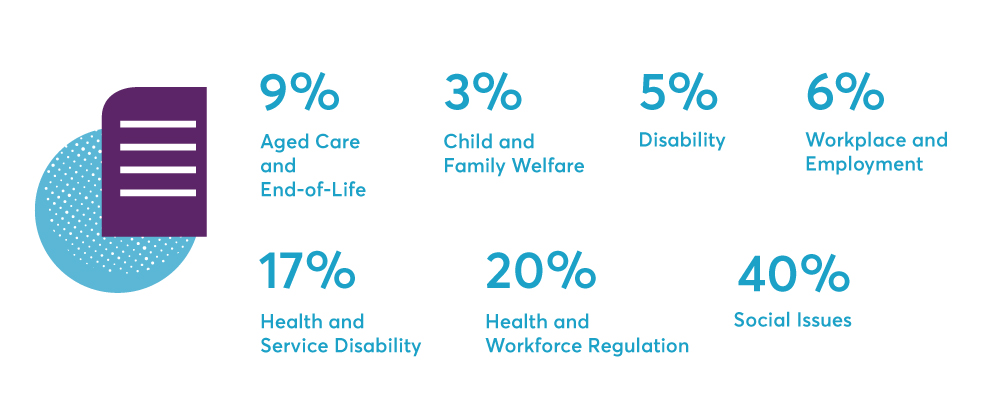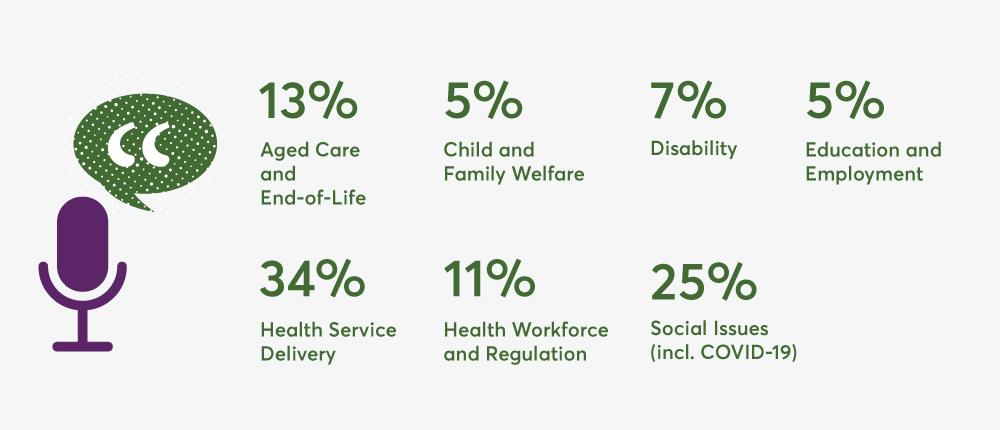The APS has been clear on what members want and need in 2020. This was achieved by keeping the lines of communication open at all times, even through a seamless transition to a fully virtual office in March following the announcement of the pandemic. Staff heard directly from members via thousands of emails and phone calls, and through multiple webinars. With this singular direction gathered from multiple voices, the APS presented a clear case to Government, resulting in some significant achievements.
These included:
- COVID-19 telehealth items for all Australians
- Gap fee options for all COVID-19 telehealth items, for all Australians
- Coverage for teleconsultations from Australian health funds during the coronavirus outbreak
- The lifting of restrictions on charging gap fees for children, as a result of our advocacy work
- Additional Medicare-rebated sessions for bushfire-affected communities.
Our lobbying work continued in earnest regarding increasing the currently available 10 sessions to at least 20 sessions to any Australian, in any part of the country, with a Mental Health Treatment Plan. Given the stresses placed on Australians – in particular over the last year – this is essential.
In April, the APS was advised that the MBS Review Taskforce had been put on hold until further notice, to allow the clinicians who make up the Taskforce to focus on their patients during the coronavirus crisis. The Taskforce’s report was originally expected to be delivered in May 2020.
Similarly, the Psychology Board of Australia’s (PsyBA) review of professional competency requirements, which was due to begin in late March, was also put on hold. The APS has carefully considered the PsyBA Green Paper released in February, and will be involved in stakeholder meetings in 2021 and beyond.
In November 2019, the APS joined the leaders of 43 psychological associations at the first International Summit on Psychology and Global Health: A Leader in Climate Action in Lisbon. There, we signed a referendum citing the “overwhelming agreement among climate scientists that climate change poses a serious global threat, is occurring faster than previously anticipated and is contributed to by human behaviour.” The APS and our international colleagues pledged to encourage leaders in government, academia, health and business to use more psychological science in designing policies to promote sustainable preventive and corrective behaviours.
In August 2019, the APS acted quickly to address many of the concerns our members raised around the introduction of new contracting arrangements in the shift of ADF service provider from Medibank to Bupa. The APS met with ADF representatives and as a result, Bupa agreed to reinstate many of the arrangements that were previously in place under Medibank.
In 2020 the APS continued its work providing secretariat support for the National Assessment and Referral Project, funded by the Department of Health. The project aims to develop national guidance and resources for the assessment and referral of clients presenting for assistance across the stepped-care approach.
Submissions
The APS made submissions to Government across a range of areas affecting Australian communities. Once again, health workforce and regulation was a focus, relating to the structure and function of the mental health workforce. There was a significant increase in submissions around social issues, in large part due to COVID-19.

Representations
APS strategic advocacy and contribution to community wellbeing was supported through representation on a large number of influential advisory groups and committees. The APS voiced its expertise on a range of issues and areas where psychology plays a role.
